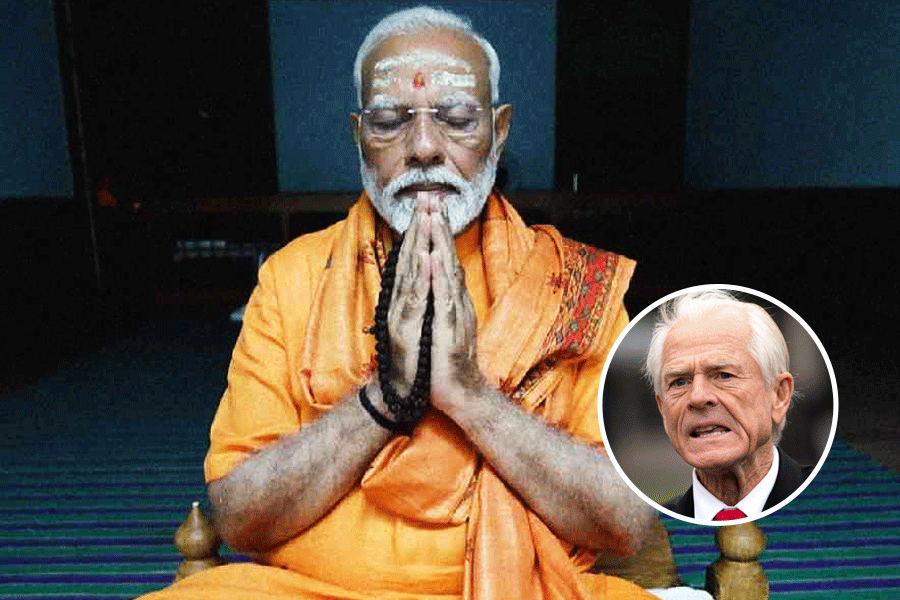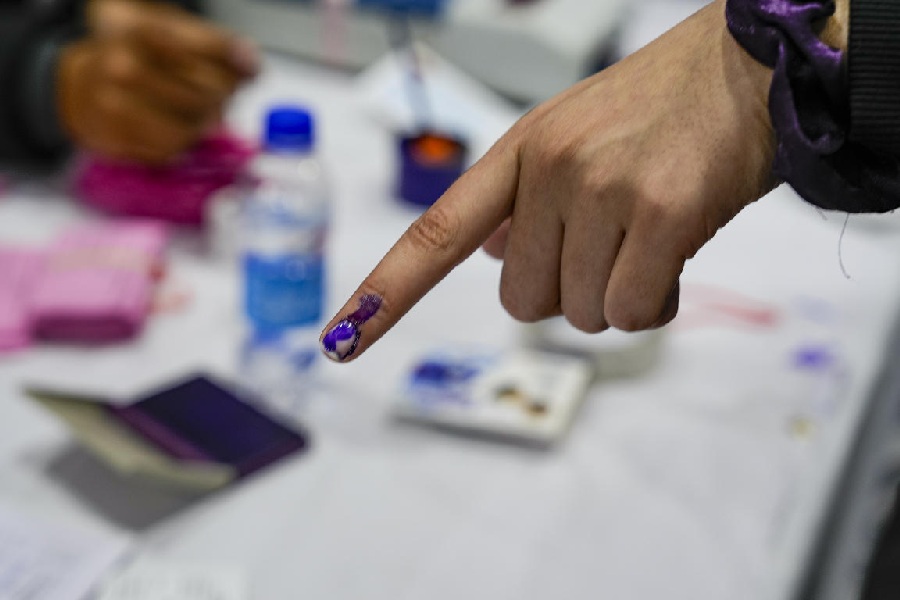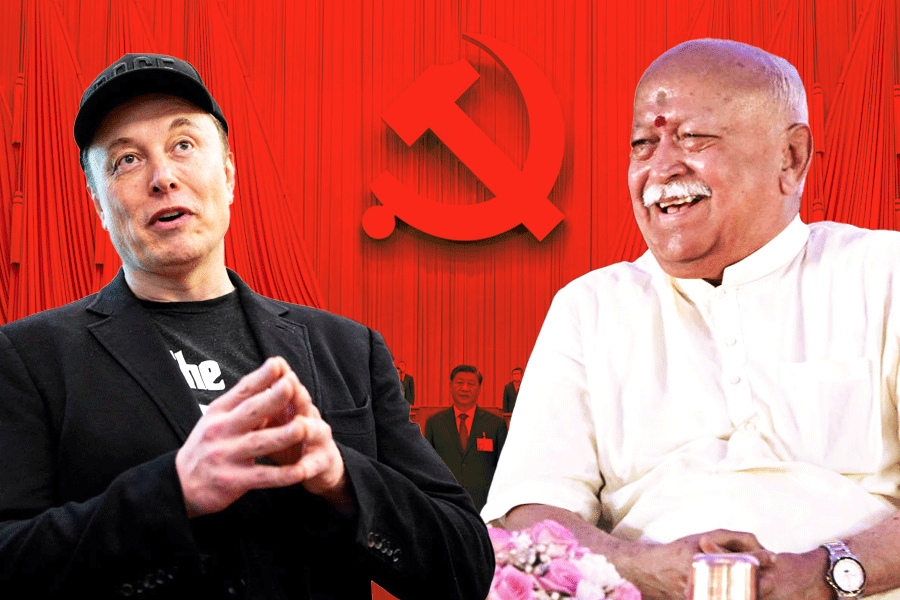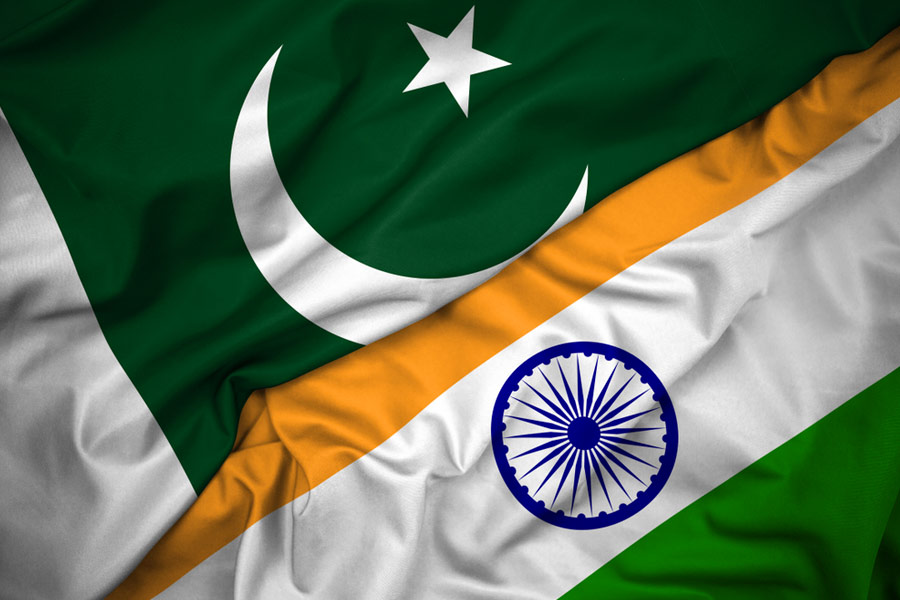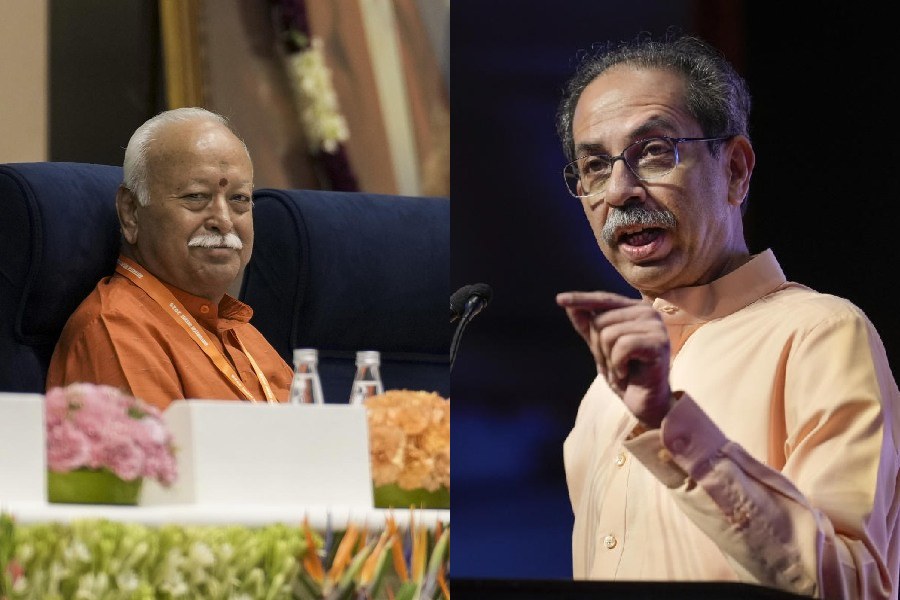

Shylock reimagined in The Merchant of Venice
Narendra Modi will get a rousing welcome when he attends a massive rally being planned in Wembley Stadium next month. He is hugely popular, especially among British Gujaratis, but after the lynching of Mohammad Akhlaq in Dadri, Uttar Pradesh, the mutterings have begun.
"If this goes on, the BJP will lose the next general election," was a typical comment.
Events in India brought to mind Madam Roland's comment as she passed the statue of Liberty on her way to the guillotine on November 8, 1793, during the "reign of terror" unleashed by the Jacobins in France: " O Liberté, que de crimes on commet en ton nom!" ("O Liberty! What crimes are committed in thy name!")
"Liberty" can be replaced with "religion" in a retelling of The Merchant of Venice - renamed The Merchant of Vembley (Indian pronunciation of Wembley) - which opened last week at The Cockpit, a 450-seat theatre in north London.
The playwright, Shishir Kurup, an Indian living in Los Angeles, has replaced Shylock, the Jew, with "Sharuk", a Muslim.
This play probably wouldn't get an extended run in Dadri but the playwright has played around with Shakespeare's traditional ending to make his Muslim moneylender less of a villain.
In Britain, the word that attaches most commonly to "Muslim" - at least in the popular consciousness - is "terrorist". Psychiatrists often play this game with their patients.
Loath as I am to generalise, especially as I am missing doing anjali at a time of the Pujas, sitting here in London, the word that is coming to be associated with "Hindu" (especially if someone dons saffron) is "fascist".
Of course, this is ridiculous but as a friend of mine likes to say about life's basic unfairness: "Life's a bitch - and then you die."
Law leeway
This morning's essay competition is on Saudi justice: compare and contrast the way the Royal Kingdom of Saudi Arabia treats Indian and British nationals.
Saudi law says that any foreigner who comes to work in Saudi Arabia in search of easy money is subject to the Sharia law of the kingdom without fear or favour.
However, there is an unwritten sub-clause which states that the nationals of tier II or III countries such as Indians and Pakistanis may have their hands and even heads chopped off. But nationals of tier I countries, such as America and Britain, may be told they will be whipped, say, for possession of alcohol but a way should be found not to mess with powerful Western governments.
After an Indian housemaid, Kasturi Munirathinam, had her right hand cut off by the lady of the house, Sushma Swaraj tweeted: "Chopping of hand of Indian lady - We are very much disturbed over the brutal manner in which Indian lady has been treated in Saudi Arabia."
The Saudis may well have a little chuckle over her tweet.
In contrast, even King Salman will be made aware that the whole of Britain is up in arms - no pun intended - over the 350 lashes ordered after a 74-year-old grandfather, Karl Andree, a cancer patient, was caught with some home-made wine in his car.
Britain last week cancelled a £6m contract to "sell expertise to the Saudi penal system" - some wits have suggested the British were going to teach Saudi executioners "better beheadings".
The British government is mindful that the kingdom buys billions of pounds worth of defence equipment from the UK. But I would be very surprised if Andree gets a public flogging.
Another unwritten sub-clause says: "In cases where Brits are involved, the King should exercise his powers of forgiveness and grant a pardon."
Bolly bandhu
.jpg)
Though he is a "Bollywood star", having played "the bad boy" in some 400 movies, Gulshan Grover comes across in private as affable, intelligent and loyal.
Over lunch last week at the Red Fort in Soho with the Indian Journalists' Association, he spoke in the highest possible terms about Prince Charles, with whom he had dinner at Dumfries House, a mansion in Ayrshire in Scotland.
Somewhat cheekily he asked His Royal Highness whether a Bollywood film could be shot at Dumfries House, to which the answer was yes.
"He is one of the most misunderstood persons here," said Gulshan. "He's one of the best persons I have met. He would be good for Britain."
I agree with Gulshan, although the British press almost never has a good word for Charles.
What Charles, who is president of the British Asian Trust, really wanted to discuss was how he could help others through his various royal charities - "how can we make a difference to a certain section of society?"
Gulshan was in the UK for the screening of Beeba Boys at the London Film Festival. Set among Sikhs in Vancouver, Gulshan plays a gang leader who is threatened by a younger rival. The film, written and directed by Deepa Mehta, is reasonably entertaining but probably deserves two or three stars out of five.
Neelam brand
.jpg)
Neelam Gill, the 20-year-old Coventry-born Punjabi model, isn't yet Naomi Campbell, her heroine, but is certainly getting a lot of attention from tabloid newspapers.
She caused a buzz last week at a show where such Sony gadgets as a camera and a smartphone, used during the new Bond film Spectre , were being promoted.
Readers were told that "the English beauty wrapped up against the cool autumn evening... in a stylish grey poncho jumper. Teaming her chic top with a pair of black shorts, the model adopted an understated yet chic theme for the 007 event. Adding a racy edge to her ensemble, the model drew attention to her lithe legs by donning a pair of lace-up, over-the-knee, suede stiletto boots. Wearing her raven locks arrow-straight and in a centre-parting, Neelam showcased her naturally striking features by letting her hair frame her face."
The papers are now using Neelam's rising celebrity status to sell fashion: "Now get some boots like Neelam's..."
Deadly sheep
To be attacked by Geoffrey Howe was like "being savaged by a dead sheep", the Labour politician, Denis Healey, who died recently, aged 98, once remarked uncharitably.
Last week, it was Howe who passed away, aged 88. He had worked loyally all his career with Margaret Thatcher, as chancellor and foreign secretary, but is now remembered mainly for his devastating Commons resignation speech which brought her down in 1990.
Referring to how Mrs Thatcher's anti-European Union stance had made life impossible for him as foreign secretary, he used a cricketing metaphor: "It is rather like sending your opening batsmen to the crease only for them to find, the moment the first balls are bowled, that their bats have been broken before the game by the team captain."
Tittle tattle
More on Britain's most successful but little known Bengali - Dhaka-born Lord Kumar Bhattacharyya, 75, professor of engineering and founder chairman of the Warwick Manufacturing Group.
The man, who prefers to remain under the radar, tells me he was hugely annoyed when author Andrew Lorenz rumbled him by publishing his unauthorised biography, Kumar Bhattacharyya: The Unsung Guru .
I am pleased I have just managed to get hold of a copy of the book. I am surprised it hasn't been pirated.





